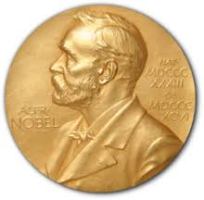Nobel Prize in Economics for 2023

The Nobel Prize in Economics for 2023 has been awarded to Claudia Goldin, a professor at Harvard University, in recognition of her groundbreaking work in advancing our understanding of women’s labor market outcomes. Her research, focused primarily on the United States, has shed light on the historical trends and factors influencing women’s participation in the labor market and the persistent gender pay gap.
Historical Perspective
Prior to Goldin’s research, data primarily from the 20th century had been used to analyze women’s labor force participation. Goldin’s work delved deeper into historical data, spanning over 200 years, revealing that women’s involvement in economic activities related to agriculture and cottage industries was more prevalent before industrialization. The concentration of work in factories during industrialization made it challenging for women to leave their homes for employment.
The Role of Services Sector
Goldin’s research highlighted the significant growth of the services sector in the early 20th century, which provided new opportunities for women’s employment. This sector’s expansion allowed women to access higher education and employment opportunities.
Limitations of Marriage
Goldin found that at the beginning of the 20th century, only around 20% of women were gainfully employed, and the share of married women in the workforce was as low as 5%. Legislation known as “marriage bars” often prevented married women from continuing their employment, particularly as teachers or office workers. These bars, which excluded married women from certain jobs, peaked during the Great Depression and its aftermath.
Impact of Women’s Expectations
Women’s career decisions and expectations were influenced by the experiences of their mothers. Their choices were often not made with the anticipation of pursuing long, uninterrupted careers.
Contraceptive Pills
The popularity of easy-to-use contraceptive pills in the late 1960s allowed women greater control over childbirth and the ability to plan their careers and motherhood. This led to increased participation in fields like law, economics, and medicine.
Gender Pay Gap and Parenthood
Goldin’s research revealed that the gender pay gap widened as women transitioned from factory work, where pay depended on daily output, to monthly pay contracts. One significant factor impacting pay disparities was parenthood. As women took on more parenting responsibilities, their earnings suffered, and they experienced slower career advancement compared to men with similar education and professions.
Claudia Goldin’s pioneering work has contributed significantly to our understanding of the dynamics of women’s labor force participation and the factors influencing gender pay gaps. Her research has implications not only for the United States but also for countries worldwide.
About the Nobel Prize in Economics
The Nobel Prize in Economics, formally known as the Sveriges Riksbank Prize in Economic Sciences in Memory of Alfred Nobel, was established in 1968 through a donation from Sweden’s central bank. It is awarded annually and is not part of Alfred Nobel’s original will. Claudia Goldin is the third woman to receive this prestigious honor, following Elinor Ostrom in 2009 and Esther Duflo in 2019.






